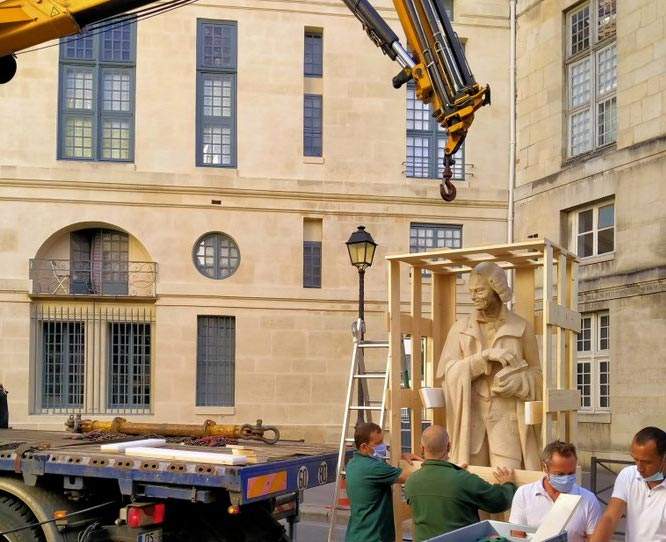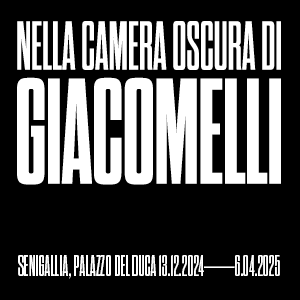France, controversy over removal of a statue of Voltaire from rue de Seine in Paris
There is much discussion in France over the removal of a statue of Voltaire by sculptor Léon Drivier (Grenoble, 1878 - Paris, 1951), which until yesterday stood on the rue de Seine in Paris. The monument had been daubed in late June during protests by the Black Lives Matter movement because of Voltaire’s dealings with trade in colonial times, which would have decreed part of the economic fortune of the great Enlightenment philosopher and author of Candide. In yesterday’s day, a heavy vehicle harnessed the statue and removed it from its location: as a result, reactions from politicians, intellectuals and ordinary social users were unleashed, many of whom accused the City of Paris of being responsible for an attempt to cancel culture. In France, the topic is hotly debated: in mid-June, the president of the republic, Emmanuel Macron, assured that France would not erase its history or remove statues.
Giving an ex post explanation was Paris’ councillor for urban planning and architecture, Emmanuel Gregoire, who tweeted, “the statue of Voltaire in rue de Seine has been cleaned. It was a work on deposit from state collections, and has been returned to the Centre National des Arts Plastiques (CNAP). The city of Paris hopes that it can be reinstalled in public space, with the permission of the state.”
But the justification given by Gregoire also generated controversy. The work, in fact, was given on deposit by the state to the City of Paris in 1960, and the return of the sculpture to state collections sixty years later, at a time when there is much debate about monuments, was immediately read as either improvised or an attempt to mask the real reasons for the removal.
But there could also be another reason: namely, it could be an attempt to preserve the work from further vandalism. Supporting this hypothesis is, among others, Didier Rykner of La Tribune de l’Art, according to whom “it is clear that the City of Paris did not remove Voltaire for political reasons, but for reasons of preservation. And it is understandable that CNAP and the conservators in charge of this work are concerned about the repeated vandalism it has suffered.” However, the bitterness of seeing a statue dismantled because the state is unable to put an end to the wave of vandalism remains. “We appeal to zero tolerance,” Rykner writes, “but to apply it requires courage, and courage is evidently lacking in this government.”
In short, that the Voltaire statue was removed for its political meanings seems to be nothing more than fake news, but it is also true that although there are no ideological reasons, Rykner concludes, "the removal gives reason to all lovers of cancel culture."
 |
| France, controversy over removal of a statue of Voltaire from rue de Seine in Paris |
Warning: the translation into English of the original Italian article was created using automatic tools. We undertake to review all articles, but we do not guarantee the total absence of inaccuracies in the translation due to the program. You can find the original by clicking on the ITA button. If you find any mistake,please contact us.





























